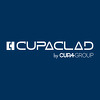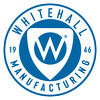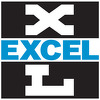
 Slate has been used for centuries as a long-lasting building material, and its natural beauty is unsurpassed. Today, rainscreen cladding systems have been developed to adapt natural slate to new architectural demands for sustainable building design approaches. This course explores the energy efficiency and moisture management benefits of a rainscreen system in combination with the durability and versatility of slate. The different designs and fastening systems are reviewed, and case studies demonstrate the advantages and possibilities for sustainable and beautiful slate projects.
Slate has been used for centuries as a long-lasting building material, and its natural beauty is unsurpassed. Today, rainscreen cladding systems have been developed to adapt natural slate to new architectural demands for sustainable building design approaches. This course explores the energy efficiency and moisture management benefits of a rainscreen system in combination with the durability and versatility of slate. The different designs and fastening systems are reviewed, and case studies demonstrate the advantages and possibilities for sustainable and beautiful slate projects.

https://redirect.aecdaily.com/s1073957/www.aecdaily.com/course/1101030
This course contains sustainable design information. See the course details page for more information.
This course is part of one or more "Course Collections". Click here to view the details.
This course is ONLINE: SELF-PACED. Experience it on your own schedule, at your convenience.

 The savings that water conservation measures can provide are real and practical and offer enormous untapped potential. One of the best ways to boost conservation really hasn’t been thoroughly utilized, yet it’s right here at our fingertips: faucets. This course provides an overview of commercial faucets, including the evolution of the modern faucet, design and installation considerations, and the faucet’s impact on water conservation and green building programs.
The savings that water conservation measures can provide are real and practical and offer enormous untapped potential. One of the best ways to boost conservation really hasn’t been thoroughly utilized, yet it’s right here at our fingertips: faucets. This course provides an overview of commercial faucets, including the evolution of the modern faucet, design and installation considerations, and the faucet’s impact on water conservation and green building programs.

https://redirect.aecdaily.com/s3515/www.aecdaily.com/course/670359
This course contains sustainable design information. See the course details page for more information.
This course is ONLINE: SELF-PACED. Experience it on your own schedule, at your convenience.

 In recent years, the inclusion of wine cellars has become a hallmark of luxury and upscale housing, extending beyond individual homes to multifamily residences, bars, private clubs, and restaurants. This course is a practical guide for architects, designers, general contractors, and engineers on building attractive, efficient, and highly functioning wine cellars that successfully integrate technical requirements with design intent.
In recent years, the inclusion of wine cellars has become a hallmark of luxury and upscale housing, extending beyond individual homes to multifamily residences, bars, private clubs, and restaurants. This course is a practical guide for architects, designers, general contractors, and engineers on building attractive, efficient, and highly functioning wine cellars that successfully integrate technical requirements with design intent.

https://redirect.aecdaily.com/s1078631/www.aecdaily.com/course/1094744
This course is ONLINE: SELF-PACED. Experience it on your own schedule, at your convenience.

 Authorities having jurisdiction all over the world, including in all 50 US states, have mandated photoluminescent egress path markings to support safe evacuation of high-rise buildings in the case of total power failure. This course reviews photoluminescent egress path marking requirements in the model International Building Code® and International Fire Code® (2015, 2018, 2021) and identifies compliant photoluminescent path marking products. The course also discusses recommended best practices that exceed code requirements, which will reduce building operation costs and improve occupant and first responder safety.
Authorities having jurisdiction all over the world, including in all 50 US states, have mandated photoluminescent egress path markings to support safe evacuation of high-rise buildings in the case of total power failure. This course reviews photoluminescent egress path marking requirements in the model International Building Code® and International Fire Code® (2015, 2018, 2021) and identifies compliant photoluminescent path marking products. The course also discusses recommended best practices that exceed code requirements, which will reduce building operation costs and improve occupant and first responder safety.

https://redirect.aecdaily.com/s1086508/www.aecdaily.com/course/1086515
This course contains sustainable design information. See the course details page for more information.
This course is part of one or more "Course Collections". Click here to view the details.
This course is ONLINE: SELF-PACED. Experience it on your own schedule, at your convenience.

 Wildfires are becoming more common and severe, posing a significant threat to communities worldwide. Architects and the building industry must adopt a proactive approach to address this issue. In this course, we explore innovative and eco-friendly wildfire defense systems, which can play a vital role in protecting our communities and the environment from the harmful effects of wildfires and addressing the current home insurance crisis.
Wildfires are becoming more common and severe, posing a significant threat to communities worldwide. Architects and the building industry must adopt a proactive approach to address this issue. In this course, we explore innovative and eco-friendly wildfire defense systems, which can play a vital role in protecting our communities and the environment from the harmful effects of wildfires and addressing the current home insurance crisis.

https://redirect.aecdaily.com/s1081629/www.aecdaily.com/course/1106239
This course contains sustainable design information. See the course details page for more information.
This course is part of one or more "Course Collections". Click here to view the details.
This course is ONLINE: SELF-PACED. Experience it on your own schedule, at your convenience.

 With the demand for sustainable power on the rise, building owners and homeowners alike are turning to solar power as a supplemental power generator. Choosing the right platform for the solar panels is a critical step in the design process and can have a significant impact on both initial and long-term costs. This course discusses the basics of photovoltaic systems, including the components and rooftop applications. Comparisons between traditional roofing and standing seam metal roofing platforms are examined, and the benefits of a nonpenetrating clamping system are discussed.
With the demand for sustainable power on the rise, building owners and homeowners alike are turning to solar power as a supplemental power generator. Choosing the right platform for the solar panels is a critical step in the design process and can have a significant impact on both initial and long-term costs. This course discusses the basics of photovoltaic systems, including the components and rooftop applications. Comparisons between traditional roofing and standing seam metal roofing platforms are examined, and the benefits of a nonpenetrating clamping system are discussed.

https://redirect.aecdaily.com/s427660/www.aecdaily.com/course/749008
This course contains sustainable design information. See the course details page for more information.
This course is ONLINE: SELF-PACED. Experience it on your own schedule, at your convenience.

 The design of behavioral healthcare facilities should address the therapeutic and safety needs of patients and staff while meeting the applicable codes and regulations. Reviewed in this course are ligature-resistant products developed for patient rooms and bathrooms that strike the balance between providing the safest design solutions and creating a noninstitutional environment.
The design of behavioral healthcare facilities should address the therapeutic and safety needs of patients and staff while meeting the applicable codes and regulations. Reviewed in this course are ligature-resistant products developed for patient rooms and bathrooms that strike the balance between providing the safest design solutions and creating a noninstitutional environment.

https://redirect.aecdaily.com/s795432/www.aecdaily.com/course/1012262
This course is ONLINE: SELF-PACED. Experience it on your own schedule, at your convenience.

 With the increasing prominence of glass in new buildings and retrofits, the use of window film can raise the style, performance, and safety of today’s building projects. This course examines the use of various types of window film (decorative, solar control, and safety/security) and their role in improving occupant comfort and safety, lowering energy costs, and enhancing privacy.
With the increasing prominence of glass in new buildings and retrofits, the use of window film can raise the style, performance, and safety of today’s building projects. This course examines the use of various types of window film (decorative, solar control, and safety/security) and their role in improving occupant comfort and safety, lowering energy costs, and enhancing privacy.

https://redirect.aecdaily.com/s741679/www.aecdaily.com/course/764404
This course contains sustainable design information. See the course details page for more information.
This course is ONLINE: SELF-PACED. Experience it on your own schedule, at your convenience.

 Designers, building users, and managers are increasingly focused on building and occupant health as well as energy conservation. This course explores how mixed-mode (hybrid) ventilation systems address all these issues by improving the ratio of fresh air introduced into buildings while reducing energy needs and costs. It describes the benefits, elements, and workings of these systems and provides design guidance and illustrative case studies.
Designers, building users, and managers are increasingly focused on building and occupant health as well as energy conservation. This course explores how mixed-mode (hybrid) ventilation systems address all these issues by improving the ratio of fresh air introduced into buildings while reducing energy needs and costs. It describes the benefits, elements, and workings of these systems and provides design guidance and illustrative case studies.

https://redirect.aecdaily.com/s19829/www.aecdaily.com/course/932660
This course contains sustainable design information. See the course details page for more information.
This course is part of one or more "Course Collections". Click here to view the details.
This course is ONLINE: SELF-PACED. Experience it on your own schedule, at your convenience.

 Unfortunately, gun violence is a reality, and design strategies must be employed to ensure a suitable level of protection and safety. This course addresses bullet-resistant fiberglass composite panels and the need for architectural armoring. The course discusses ballistic material testing and standards, the types of ballistic materials available, and fiberglass composite panel applications and installation considerations.
Unfortunately, gun violence is a reality, and design strategies must be employed to ensure a suitable level of protection and safety. This course addresses bullet-resistant fiberglass composite panels and the need for architectural armoring. The course discusses ballistic material testing and standards, the types of ballistic materials available, and fiberglass composite panel applications and installation considerations.

https://redirect.aecdaily.com/s15243/www.aecdaily.com/course/928543
This course is ONLINE: SELF-PACED. Experience it on your own schedule, at your convenience.

 Today’s sectional overhead doors are more sophisticated than ever. Options include high-strength glazing for security and insulated steel sections for increased energy efficiency and durability. Code requirements for safety in high wind-load areas, impact resistance to hurricanes, and reductions in air transmission have led to improvements in door technology and hardware. This course examines a range of safety and security options for architects to consider when designing and specifying sectional overhead doors.
Today’s sectional overhead doors are more sophisticated than ever. Options include high-strength glazing for security and insulated steel sections for increased energy efficiency and durability. Code requirements for safety in high wind-load areas, impact resistance to hurricanes, and reductions in air transmission have led to improvements in door technology and hardware. This course examines a range of safety and security options for architects to consider when designing and specifying sectional overhead doors.

https://redirect.aecdaily.com/s17282/www.aecdaily.com/course/930425
This course contains sustainable design information. See the course details page for more information.
This course is ONLINE: SELF-PACED. Experience it on your own schedule, at your convenience.

 Traditionally, home has been a place for retreat and sanctuary. But as more people work from home, it is increasingly difficult to disengage from work responsibilities and set aside the time needed to refresh ourselves. As our stress levels rise, so does the need for self-care. This course looks at two areas of the home that are ideal for performing self-care and improving our well-being, assisted by investing in luxurious items: the bathroom and the kitchen.
Traditionally, home has been a place for retreat and sanctuary. But as more people work from home, it is increasingly difficult to disengage from work responsibilities and set aside the time needed to refresh ourselves. As our stress levels rise, so does the need for self-care. This course looks at two areas of the home that are ideal for performing self-care and improving our well-being, assisted by investing in luxurious items: the bathroom and the kitchen.

https://redirect.aecdaily.com/s8279/www.aecdaily.com/course/965395
This course is ONLINE: SELF-PACED. Experience it on your own schedule, at your convenience.

 Recent events have emphasized the importance of proper hygiene, especially in public restrooms. Presented here is a discussion on which public restroom surfaces commonly promote the spread of germs and how touchless sink faucets can be used to reduce the proliferation of harmful bacteria. Design professionals will learn about water treatment and filtration options and water system management strategies, and how to apply preventative measures to create hygienic public restrooms that support public safety.
Recent events have emphasized the importance of proper hygiene, especially in public restrooms. Presented here is a discussion on which public restroom surfaces commonly promote the spread of germs and how touchless sink faucets can be used to reduce the proliferation of harmful bacteria. Design professionals will learn about water treatment and filtration options and water system management strategies, and how to apply preventative measures to create hygienic public restrooms that support public safety.

https://redirect.aecdaily.com/s3515/www.aecdaily.com/course/960918
This course is ONLINE: SELF-PACED. Experience it on your own schedule, at your convenience.

 Modern hydronic radiator systems are an energy-efficient, healthy, and hygienic solution for residential and commercial applications. This course discusses the principles of radiant heating and panel radiators, and how to size panel radiators for residential applications.
Modern hydronic radiator systems are an energy-efficient, healthy, and hygienic solution for residential and commercial applications. This course discusses the principles of radiant heating and panel radiators, and how to size panel radiators for residential applications.

https://redirect.aecdaily.com/s715366/www.aecdaily.com/course/890900
This course contains sustainable design information. See the course details page for more information.
This course is part of one or more "Course Collections". Click here to view the details.
This course is ONLINE: SELF-PACED. Experience it on your own schedule, at your convenience.

 Professional sports stadiums form large complexes with enormous impacts on the environment and local communities. Owners, architects, and operations managers can use this influence to generate a net positive effect on people, the natural environment, and the bottom line. In this video, the executives and consultants involved in the design and daily operation of Gillette Stadium and Mercedes-Benz Stadium discuss the challenges and opportunities of sustainable stadium design. Topics discussed include district energy generation, gray water treatment, evaluation and implementation of new technologies, partnering with local utilities, cost recovery, profitability, and community health.
Professional sports stadiums form large complexes with enormous impacts on the environment and local communities. Owners, architects, and operations managers can use this influence to generate a net positive effect on people, the natural environment, and the bottom line. In this video, the executives and consultants involved in the design and daily operation of Gillette Stadium and Mercedes-Benz Stadium discuss the challenges and opportunities of sustainable stadium design. Topics discussed include district energy generation, gray water treatment, evaluation and implementation of new technologies, partnering with local utilities, cost recovery, profitability, and community health.

https://redirect.aecdaily.com/s5712/www.aecdaily.com/course/870239
This course contains sustainable design information. See the course details page for more information.
This course is ONLINE: SELF-PACED. Experience it on your own schedule, at your convenience.

 In the last couple of decades, houses have become progressively more airtight due to energy efficiency and cost concerns. While air infiltration and exfiltration rates have been significantly reduced, the need for an efficient ventilation system has become extremely important. This course evaluates different types of mechanical ventilation systems and discusses why heat recovery ventilation (HRV) and energy recovery ventilation (ERV) systems are characterized by a high level of energy efficiency and as an effective means for improving indoor air quality.
In the last couple of decades, houses have become progressively more airtight due to energy efficiency and cost concerns. While air infiltration and exfiltration rates have been significantly reduced, the need for an efficient ventilation system has become extremely important. This course evaluates different types of mechanical ventilation systems and discusses why heat recovery ventilation (HRV) and energy recovery ventilation (ERV) systems are characterized by a high level of energy efficiency and as an effective means for improving indoor air quality.

https://redirect.aecdaily.com/s19871/www.aecdaily.com/course/888488
This course contains sustainable design information. See the course details page for more information.
This course is ONLINE: SELF-PACED. Experience it on your own schedule, at your convenience.

 The planet is currently in a water scarcity crisis, which is significantly affected by toilet water usage. This course examines the current plumbing codes, standards, and regulations that address toilet water usage, the need for and benefits of going beyond current standards, and the goals of a variety of beyond-the-code voluntary standards and rating systems, such as LEED v4 BD+C and ICC 700 National Green Building Standard®. It explains the various types of low-flow and ultra-low-flow toilets, their pros and cons, and their selection criteria. It concludes with a sampling of successful cost- and water-saving installations.
The planet is currently in a water scarcity crisis, which is significantly affected by toilet water usage. This course examines the current plumbing codes, standards, and regulations that address toilet water usage, the need for and benefits of going beyond current standards, and the goals of a variety of beyond-the-code voluntary standards and rating systems, such as LEED v4 BD+C and ICC 700 National Green Building Standard®. It explains the various types of low-flow and ultra-low-flow toilets, their pros and cons, and their selection criteria. It concludes with a sampling of successful cost- and water-saving installations.

https://redirect.aecdaily.com/s10412/www.aecdaily.com/course/983256
This course contains sustainable design information. See the course details page for more information.
This course is ONLINE: SELF-PACED. Experience it on your own schedule, at your convenience.

 Power and charging needs in hotels, offices, and lobbies have changed due to emerging trends in how people use their electronic devices. Modern users require more and better access to charging. This need combined with the rise of the USB-Type C Standard, new furniture-based power technology, and the challenges of open space design requires designers to apply a new strategy for power/charging outlets. This course discusses how to employ furniture power distribution units (FPDUs) to meet the needs of users, hotel operators, and facility managers.
Power and charging needs in hotels, offices, and lobbies have changed due to emerging trends in how people use their electronic devices. Modern users require more and better access to charging. This need combined with the rise of the USB-Type C Standard, new furniture-based power technology, and the challenges of open space design requires designers to apply a new strategy for power/charging outlets. This course discusses how to employ furniture power distribution units (FPDUs) to meet the needs of users, hotel operators, and facility managers.

https://redirect.aecdaily.com/s525798/www.aecdaily.com/course/836152
This course is ONLINE: SELF-PACED. Experience it on your own schedule, at your convenience.

 Modular systems are designed around individual components that can be joined together to configure a seamless and personalized space solution. This course discusses the key design principles and benefits of modular design along with strategies for successfully incorporating modularity into a bathroom design.
Modular systems are designed around individual components that can be joined together to configure a seamless and personalized space solution. This course discusses the key design principles and benefits of modular design along with strategies for successfully incorporating modularity into a bathroom design.

https://redirect.aecdaily.com/s12219/www.aecdaily.com/course/1062036
This course is ONLINE: SELF-PACED. Experience it on your own schedule, at your convenience.

 Heated towel racks not only warm and dry damp towels, but also add a sense of comfort and luxury. This course explores heated towel racks and includes discussions on: the functions, benefits, and applications of heated towel racks; centrally heated, electric, and hydronic heating systems; materials and finishes; installation and care; and design and accessory options.
Heated towel racks not only warm and dry damp towels, but also add a sense of comfort and luxury. This course explores heated towel racks and includes discussions on: the functions, benefits, and applications of heated towel racks; centrally heated, electric, and hydronic heating systems; materials and finishes; installation and care; and design and accessory options.

https://redirect.aecdaily.com/s587616/www.aecdaily.com/course/884892
This course contains sustainable design information. See the course details page for more information.
This course is ONLINE: SELF-PACED. Experience it on your own schedule, at your convenience.

 Made from one of the hardest and most abundant minerals in nature, engineered quartz is a beautiful, durable surface solution for a wide range of commercial and residential applications desiring the beauty of natural stone without its drawbacks. The raw materials of quartz surfacing are harvested from the Earth and formed into slabs via an innovative production process, resulting in a homogenous, nonporous material with superior performance and low maintenance requirements. Reviewed in this course are the features, fabrication guidelines, and design trends of quartz surfacing.
Made from one of the hardest and most abundant minerals in nature, engineered quartz is a beautiful, durable surface solution for a wide range of commercial and residential applications desiring the beauty of natural stone without its drawbacks. The raw materials of quartz surfacing are harvested from the Earth and formed into slabs via an innovative production process, resulting in a homogenous, nonporous material with superior performance and low maintenance requirements. Reviewed in this course are the features, fabrication guidelines, and design trends of quartz surfacing.

https://redirect.aecdaily.com/s976306/www.aecdaily.com/course/985229
This course contains sustainable design information. See the course details page for more information.
This course is ONLINE: SELF-PACED. Experience it on your own schedule, at your convenience.

 The cleanliness of rooms in healthcare facilities is critical in preventing patients from contracting life-threatening infections. Along with proper hand hygiene, frequent privacy or cubicle curtain changes help prevent the spread of healthcare associated infections (HAIs). This course examines the social, economic, and operational impact HAIs have on a healthcare organization and explains why removable curtain systems make it easier to keep privacy curtains clear of dangerous pathogens and protect the physical health of the building users.
The cleanliness of rooms in healthcare facilities is critical in preventing patients from contracting life-threatening infections. Along with proper hand hygiene, frequent privacy or cubicle curtain changes help prevent the spread of healthcare associated infections (HAIs). This course examines the social, economic, and operational impact HAIs have on a healthcare organization and explains why removable curtain systems make it easier to keep privacy curtains clear of dangerous pathogens and protect the physical health of the building users.

https://redirect.aecdaily.com/s2955/www.aecdaily.com/course/796838
This course is part of one or more "Course Collections". Click here to view the details.
This course is ONLINE: SELF-PACED. Experience it on your own schedule, at your convenience.

 Selecting outdoor kitchen cabinetry and appliances that meet a client’s needs and budget and that address climate concerns can be challenging. This course explores the design of safe, functional, and aesthetically pleasing outdoor kitchen and living areas and presents the various types of cabinetry available, with a focus on stainless steel as a positive alternative for cabinetry. Included is a synopsis of outdoor kitchen design principles and considerations.
Selecting outdoor kitchen cabinetry and appliances that meet a client’s needs and budget and that address climate concerns can be challenging. This course explores the design of safe, functional, and aesthetically pleasing outdoor kitchen and living areas and presents the various types of cabinetry available, with a focus on stainless steel as a positive alternative for cabinetry. Included is a synopsis of outdoor kitchen design principles and considerations.

https://redirect.aecdaily.com/s591341/www.aecdaily.com/course/677976
This course is ONLINE: SELF-PACED. Experience it on your own schedule, at your convenience.

 High-performance waterproof panels are engineered to mitigate moisture damage in areas where water is ever present while offering easy installation and lasting beauty. This course reviews the importance of moisture management in wet applications and examines the performance attributes of waterproof panels that make them a complete wall solution.
High-performance waterproof panels are engineered to mitigate moisture damage in areas where water is ever present while offering easy installation and lasting beauty. This course reviews the importance of moisture management in wet applications and examines the performance attributes of waterproof panels that make them a complete wall solution.

https://redirect.aecdaily.com/s15612/www.aecdaily.com/course/1007626
This course contains sustainable design information. See the course details page for more information.
This course is part of one or more "Course Collections". Click here to view the details.
This course is ONLINE: SELF-PACED. Experience it on your own schedule, at your convenience.

 The importance of handwashing in regard to personal health is well understood, and most people feel they know how to do it properly. However, the places where and methods by which hands are washed are not always as healthy and safe as they should or appear to be. This course outlines the proper handwashing techniques, especially for healthcare and food preparation contexts; explains how germs, viruses, and bacteria are spread and where sanitation problems with sinks may reside; and describes how to select and specify the most appropriate washup, infection prevention, and scrub sinks, countertops, and fitments.
The importance of handwashing in regard to personal health is well understood, and most people feel they know how to do it properly. However, the places where and methods by which hands are washed are not always as healthy and safe as they should or appear to be. This course outlines the proper handwashing techniques, especially for healthcare and food preparation contexts; explains how germs, viruses, and bacteria are spread and where sanitation problems with sinks may reside; and describes how to select and specify the most appropriate washup, infection prevention, and scrub sinks, countertops, and fitments.

https://redirect.aecdaily.com/s795432/www.aecdaily.com/course/921739
This course is part of one or more "Course Collections". Click here to view the details.
This course is ONLINE: SELF-PACED. Experience it on your own schedule, at your convenience.